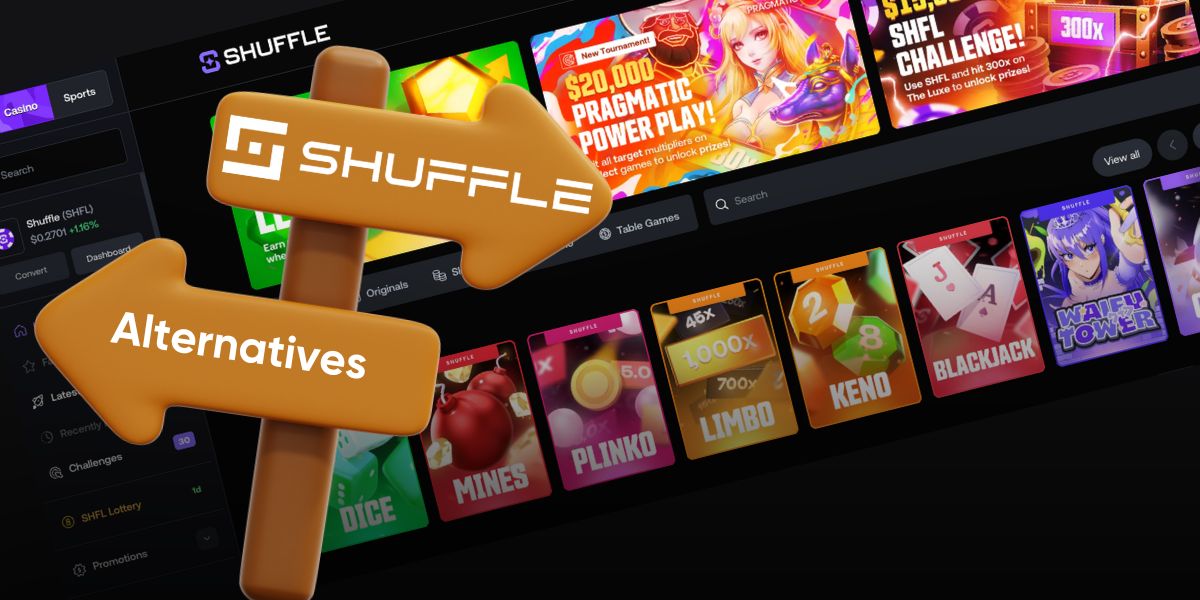
The Impact of regulation on crypto casinos and players
Crypto casinos have always had a certain allure – increased privacy, faster transactions, and better accessibility.
For years, they stood apart from traditional online casinos by operating in a largely unregulated space. However, times are changing.
Governments and regulatory bodies worldwide are tightening their grip on the crypto sector, and casinos are no exception. This raises an important question:
Are these regulations protecting you as a player, or are they limiting the freedoms that made crypto casinos appealing in the first place?
Key Takeaways 🔑
- Governments and regulatory bodies are enforcing tighter crypto regulations globally.
- Curaçao, a hub for crypto casinos, is reforming its licensing model to align with stricter AML/KYC standards.
- MiCA regulation in the EU, FCA scrutiny in the UK, and Australia’s AFSL initiative are setting new compliance benchmarks.
- Stricter regulations improve player safety but reduce anonymity and may increase operational costs for casinos.
Why are regulations tightening globally?
If you’ve been following crypto developments, you’ve probably noticed how regulation is ramping up across the board. But why?
1. Taxation and control
Governments want to control and tax crypto-related activities, including gambling. The growing popularity of digital assets has highlighted the glaring gaps in financial oversight.
It’s a tale as old as time: by tightening regulations, authorities make sure they get their share of taxes while having oversight of the market.
2. Fraud and Money Laundering concerns
We all know that crypto’s pseudo-anonymity has made it a hub for illicit activities. In response, regulators worldwide are cracking down to prevent fraud, money laundering, and other financial naughty business.
Some crypto issuers, like Circle, have already complied with authorities, which could bring them benefits.
3. Demand for player protection
Calls for responsible gambling practices and player safeguards have grown louder over the past few years.
As crypto casinos gain mainstream traction, regulators are stepping in to enforce higher standards of transparency and fairness.
Recent regulations and their impact on crypto casinos
Recently, several major jurisdictions have introduced new regulations targeting crypto-related activities. Below, I’ll break down some key regulatory changes and what they may mean for crypto casinos.
Curaçao Licensing Reform
The Curaçao Gaming Control Board (GCB), a long-time licenser of crypto casinos, is undergoing a regulatory overhaul.
Previously, licenses were issued under a master license system, which involved limited regulatory oversight and enforcement.
Now, with the establishment of the Curaçao Gaming Authority (CGA), there will be a shift from a sub-licensing system to a direct licensing model, making the process more transparent but far stricter.
So, what could this mean for crypto casinos?
- Increased compliance: Casinos must align with AML and KYC standards, which reduces the anonymity some of you players once enjoyed. This reform has already impacted major platforms like Stake and 10bet, both of which now require extensive KYC checks before withdrawal.
- Legalization of crypto payments: While crypto remains a payment option, operators may face closer scrutiny thanks to legalization and clearer legal frameworks.
- Compliance burdens: The additional regulatory hurdles could mean higher operational costs for casinos, which could trickle down to you through changes in bonuses or transaction limits.
European Union: MiCA regulation
The EU’s Markets in Crypto-Assets (MiCA) regulation, which is set to fully apply by the end of December 2024, is the most comprehensive framework for crypto-assets we’ve seen to date.
According to Verena Ross, the European Securities and Markets Authority Chair:
How might crypto casinos be impacted?
- Operational changes: To comply, crypto casinos based in the EU may need to restructure their processes, potentially affecting withdrawal times or transaction limits.
- Stricter licensing: EU-based casinos will be held to higher standards in terms of licenses, leading to better protections for you as the player, but fewer anonymous options.
United Kingdom: FCA scrutiny
The Financial Conduct Authority (FCA) in the UK has built quite a reputation for rigorous oversight. Its low approval rates for crypto firms have made it difficult for crypto casinos to operate freely in the market.
The FCA has a lot planned for 2025, and we’ve already seen some bigger brands leaving the UK market, potentially due to the increased scrutiny.
We might see crypto casinos impacted in two ways:
- Market restrictions: Fewer casinos can serve UK players, which limits your options.
- Increased compliance costs: The cost of meeting the FCA’s strict AML policies may lead to fewer promotions or higher house edges for UK-based players.
Australia: AFSL Licensing Initiative
Australia is taking steps to regulate crypto through the Australian Financial Services License (AFSL). The initiative, led by ASIC, encourages crypto firms to operate under licensed frameworks.
The new regulations were set to be implemented by November 2024. According to, Joe Longo, the ASIC Chair:
How could crypto casinos be impacted?
- Licensing requirements: Crypto casinos operating in Australia are urged to obtain an AFSL to ensure compliance with financial regulations, promoting transparency and consumer protection.
- Operational adjustments: Getting an AFSL means that casinos will need to adhere to stricter regulatory standards, which may introduce some operational hurdles.
- More enforcement: ASIC has already shown that it’s committed to enforcing compliance within the crypto industry – the recent $5.1 million fine on Kraken is a good example.
Pros and cons of stronger regulations
So, now that you’ve seen some of the most prominent recent regulations and how they may affect you and your favorite crypto gambling platforms, it’s time to consider why, and why not, these regulations could work in your favor.
The Good
- Player protection: Tighter standards might mean fewer scams, fairer games, and better safeguards for your funds. MiCA’s emphasis on transparency is a prime example.
- Increased legitimacy: With regulation, crypto casinos gain trust, which could attract new players and more investors, potentially improving platforms, in the long run.
- Market expansion: Licensed casinos will legally be able operate in more regions, possibly giving you more regulated platforms to choose from.
The Not-So-Good
- Reduced anonymity: Anonymous casinos may become a thing of the past. Already, platforms are making verification stricter.
- Higher costs: Regulatory compliance typically increases operational expenses, which could lead to less generous bonuses or stricter limits for you.
- Restricted access: In regions like the UK, regulations will likely limit the number of available platforms.
- Stifled innovation: Overregulation may discourage casinos from adopting the creative, decentralized technologies we’ve come to love.
How are crypto casinos responding?
- Relocation: Many casinos are moving to crypto-friendly jurisdictions to continue offering competitive services. Curaçao’s reform shows that even these jurisdictions are tightening up.
- Stricter KYC policies: You’ll notice more platforms requiring identity verification to comply with AML standards. The changes to Stake’s KYC requirements are an excellent example.
- Grey markets: Some casinos still operate in unregulated regions, offering services to players who prefer anonymity. However, the success of these platforms can’t be guaranteed in the long run.
Final thoughts
Regulation on crypto casinos is evolving faster and faster, with tighter controls on anonymity, licensing, and compliance. While these changes aim to protect you as a player and ensure fairness, they also come with trade-offs like reduced freedom and stricter verification.
As a player, staying informed about these developments helps you make better decisions about where and how you gamble. I’ll be sure to keep my ear to the ground and update this page with the latest information.









